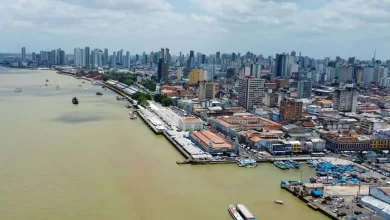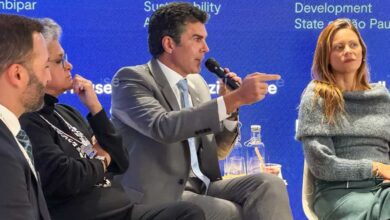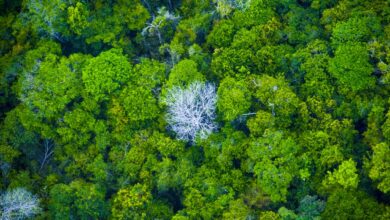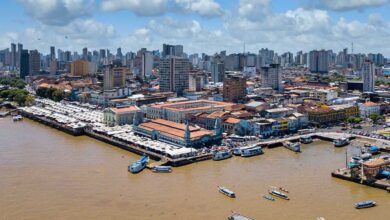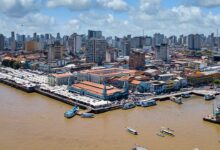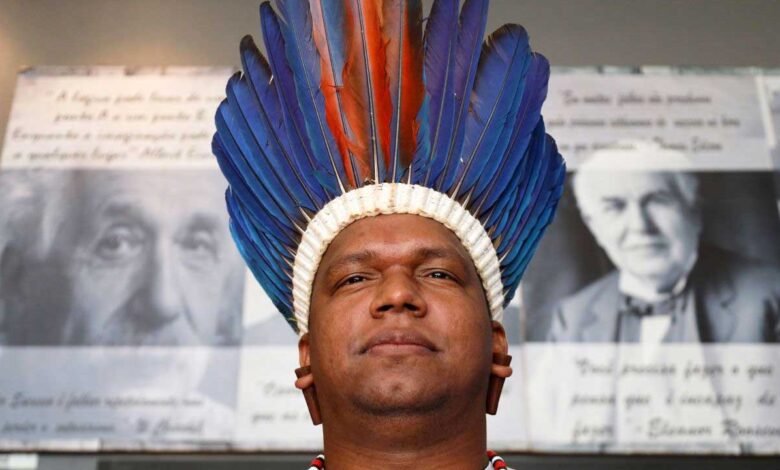
Bioeconomy and advances for 2023 are themes of the Forum on climate change
The work plan for the REDD+/PES jurisdictional agenda in 2023 was also presented.
“The expectation is that we seek to dialogue in the best possible way with public policies aimed at indigenous peoples, quilombolas and extractivists, always aiming that these public policies become in fact practical, so that they reach within our territories and guarantee, in fact, , a sustainable life, individual and collective good living, so that we can collaborate with our Amazon, especially when it comes to this issue of environmental and territorial management, and fight for us to curb this climate change, which is accelerating”, said the president of the Federation of Indigenous Peoples of the State of Pará, Ronaldo Amanayé, during the meeting of the Executive Committee of the Pará Forum on Climate Change and Adaptation, coordinated by the indigenous man.
The event was part of the Paraense Forum on Climate Change and Adaptation (FPMAC), held this Monday (19), in Belém.

The Forum also explained the State Bioeconomy Plan (PlanBio) and presented the work plan for the jurisdictional REDD+/PES agenda in 2023. REDD+ is an international financial instrument created to provide resources, through voluntary donations, to developing countries that reduce greenhouse gas emissions from native forests.
At the FPMAC Committee meeting, the main highlights of the work carried out by the committee’s technical chambers were also addressed, such as the Technical Chamber of Equity, Gender Equality and Climate Change, which presented the Forum’s timeline and the results of the research round conversation, such as the impacts of climate change on women’s lives and the necessary actions in the face of these changes.
PlanBio – Another moment of the event allowed PlanBio construction participants to watch the presentation of the Plan. The policy presentation video was shown, showing the construction process and the finalized Plan, with 92 actions signed on the agenda.
“There were several important guidelines. These are issues that have greatly mobilized society, which has involved the participation of members, both from the Executive Committee and from Coges Clima itself and from the Forum Plenary. The day was very fruitful, and based on the information that was shared here, the expectation is that civil society and the different sectors that are part of the Forum will engage and accompany, even more, and become involved with the development of these themes of the State that are in everyone’s interest,” said Teresa Moreira, specialist in Environmental Governance at the NGO The Nature Conservancy (TNC).

Carla Giovana Braga, representative of the Amazon Youth Cooperation for Sustainable Development (Cojovem), explained why she considers the Forum an important event. “More and more we are giving civil society the opportunity to be an effective actor in the change it wants to see in different territories, and we have a very large territory; consequently, very big challenges in the face of climate change. When you create a Forum in the State of Pará, providing multisectoral cooperation, especially with civil society, you give these audiences the opportunity to be heard and have greater insertion in the construction of the change they want to live in this reality”, she emphasized.
In the programming, alignments of the REDD+ and PES agenda were carried out, which allows the sectors of the economy to reverse setbacks in the socio-environmental scope and possible economic losses associated with the degradation of natural resources and biodiversity.

The main discussion on REDD+ and PES took place during the presentation of the Work Plan for the jurisdictional agenda, an opportunity to build a strong climate policy. “Despite having directions, international and national strategies, we can and should also deepen, discuss this process, and say that it actually makes sense for us here when it comes to a REED policy”, said Julianne Moutinho, technical advisor of Climate Change, Environmental Services and Bioeconomy of the Secretariat, when presenting the REDD+/PES system.
The objective is that, through the establishment of the REDD+ Jurisdictional System, payment for results and the voluntary carbon market are accessed, in order to meet the standards of socio-environmental integrity and international agreements for the contribution of justice and climate balance.

Reproduction Pará Agency


